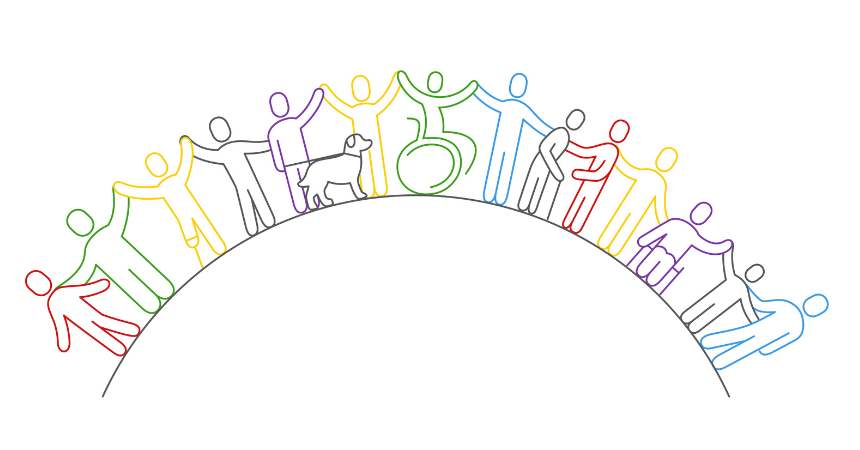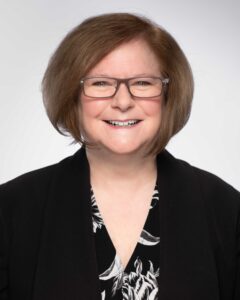Disability Inclusion or Exclusion: Choices Ahead for Our World


By Diane Whitehead, President & CEO
At Childhood Education International, we work to build a world where all children have bright futures. Disability inclusion is a fundamental part of that mission.
Sadly, at a global level, we have been witnessing increased negativity toward inclusion as a concept and decreased funding and policy support for disability inclusion. This growing rejection of the inclusion of people with disabilities is deeply concerning to us, and we believe it is important at this moment in time to make a stand in support of disability inclusion for all children.
At its core, inclusion ensures that no one is excluded. It affirms that all individuals, regardless of ability, should have opportunities to reach their full potential and participate fully in society.
Children with disabilities, like all children, deserve every opportunity to learn, grow, and thrive. At CE International, we believe inclusive education is not just beneficial—it is essential. When we provide access to quality inclusive education, we support individuals’ dreams and goals, and we build thriving communities and a more sustainable world.
Is the growing negativity toward inclusion leading us into an era of disability exclusion? Will people with disabilities be viewed as unworthy of support, care, attention, and resources? If so, why? Why would anyone see disability inclusion as not worth their time, a threat, or something that is harmful to societies? It is very hard to understand how this type of thinking helps anyone.
After decades of progress toward inclusion, respect, and dignity for individuals with disabilities, we are alarmed by signs of regression. In various parts of the world, decisions are being made that undermine disability inclusion. For example, recent actions by the United States Administration to remove the word “inclusion” from policies and withdraw disability compliance guidance raise serious concerns. We see some similar actions in other parts of the world, which is troubling because this appears to be shaping a global movement of negativity against people with disabilities. Surely, in the end, this harms us all, as most of us are subject to varying levels of ability and disability at various times in our lives and for various reasons, or we have family members or friends who need may need some inclusive measures to support them in their daily lives and to ensure their full participation in society.
This type of shift is not just a policy change—it is a step backward in our collective moral and social evolution that will ultimately harm not only individuals but also economies, communities, and societies.
At Childhood Education International, we remain steadfast in our commitment to ensuring that all children, including those with disabilities, have access to the education and learning opportunities they need to flourish.
With 133 years of experience, we have witnessed the ebb and flow of global and local socio-cultural and educational policies and practices—some championing inclusion and others rejecting it. We recognize that inclusion is not a static achievement but rather is an ongoing effort that requires vigilance and advocacy. Those who reject disability inclusion only put on display their shortsightedness and lack of knowledge about the complexities of human development.
Some governments have established strong policies that support people with disabilities, while others neglect their needs, marginalizing them and sometimes even denying their humanity.
But the true measure of a society’s strength and longevity is how it embraces diversity—especially the inclusion of individuals with disabilities. A society that values all its members fosters peace, respect, and resilience. Conversely, a society that neglects its most vulnerable members weakens its own foundation.
Progress in human rights is often slow, and setbacks are inevitable. There will be moments when the forces of exclusion gain momentum. However, history has shown that the innate human desire to create a better world for all ultimately prevails.
The choice is clear: We must stand for disability inclusion. The future of our world depends on it.
At Childhood Education International, we will continue to advocate for the inclusion of all children including those with disabilities and those who may be rejected and excluded due to life circumstances that they did not choose, including poverty, neglect, and abuse. We believe that inclusion is not just a policy—it is a principle, a moral imperative, and a commitment to building a brighter future for all of us.
CE International is committed to collective action to build bright futures for all children. Toward this end, we have submitted official pledges to commit to work in refugee education and inclusive education.
The Early Childhood Development Task Force (ECDtf) is an inclusive global network engaging in knowledge-sharing and dialogue toward locally led solutions for a world in which young children with developmental delays and disabilities can thrive. This free network connects leaders, practitioners, technical experts, service providers, advocates, and researchers who believe in the importance of early childhood development and early childhood intervention.
 Diane Whitehead, President & CEO
Diane Whitehead, President & CEODiane Whitehead has dedicated her career to issues that affect the lives of children and families. She specializes in global education, children’s education and learning, the human right to education, nonprofit leadership, management, strategic direction-setting, and program development.
Through her strategic guidance and management of this 130+year-old organization, Diane has expanded its global reach, built partnerships with education-focused organizations around the world, designed impactful programs, and participated in key international education forums and United Nations’ initiatives, a recognition of her commitment to transforming education. As Chief Executive Officer, she is dedicated to building CE International’s relevancy, reach, and impact.
Diane is the creator of Education Diplomacy and co-author of the Education Diplomacy Professional Standards. She also co-authored the International Principles of Practice for Educators to guide and inspire practitioners and to elevate the education profession by highlighting the incredible service that educators provide to both international and human development. Both Education Diplomacy and the International Principles of Practice are forging new pathways for the professional development of educators.
Diane is available to speak on education topics, leadership, change management, and the future of humanity. If you would like to invite Diane for a speaker engagement at a conference or event, please contact Kacy Kostiuk, Director of Communications, at kkostiuk@ceinternational1892.org.
Inclusion Insights is a series that elevates voices from communities around the world working to achieve disability inclusion.
The stories shared on this page were created by Early Childhood Development Task Force (ECDtf) members and others in cooperation with Childhood Education International. They feature examples of programs, approaches, policies, and advocacy that promote a world where young children with developmental delays and disabilities can thrive.
Childhood Education International is proud to have collaborated with the Zero Project, an organization working for a world with zero barriers. Worldwide, the Zero Project finds and shares solutions that improve the daily lives and legal rights of all persons with disabilities.
CE International in partnership with the UNC Frank Porter Graham Child Development Institute invited a small group of awardees to share their innovations through short interviews. These videos highlight the work of seven 2024 Zero Project Awardees. Below are overviews and videos highlighting the work of these experts, whose innovations are improving disability inclusion for children, families, and communities.